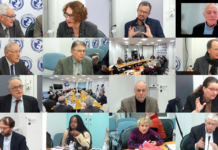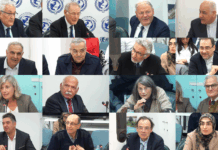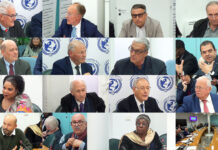Téléchargez l’article au format PDF
Morgan CAILLET
Résumé : L’éclatement de l’URSS en 1991 a provoqué un profond remaniement identitaire en Azerbaïdjan, un pays riche d’une longue histoire multiculturelle largement sécularisé depuis le XIXème siècle, au cours duquel s’est constituée la nation azerbaïdjanaise. La disparition d’un pan entier de la modernité marqué par l’athéisme scientifique et le matérialisme dialectique a inauguré avec la Perestroïka une période de recherche de nouveaux modèles identificatoires et de renouement avec les racines culturelles ancestrales. Quelle a été l’évolution des relations entre le politique et l’islam dans toute la diversité de ses courants ces 30 dernières années ? Quel type de sécularisation sous le régime Aliev pour quel type de risques sociétaux ?
Mots-clefs : Azerbaïdjan, Religion, Islam, Sunnisme, Chiisme, Sécularisation, Ilham Aliev, Culture, Turquie, Iran.
ASSESSMENT OF 30 YEARS OF MANAGEMENT OF RELIGIOUS REVIVAL IN AZERBAIJAN: A return of Islam to clandestinity ?
Abstract: The breakup of the USSR in 1991 caused a profound identity shift in Azerbaijan, a country with a long multicultural history that has been largely secularized since the 19th century, during which the Azerbaijani nation was formed. The disappearance of an entire section of modernity marked by scientific atheism and dialectical materialism inaugurated with Perestroika a period of search for new identifying models and reconnection with ancestral cultural roots. What has been the evolution of relations between politics and Islam in all the diversity of its currents over the last 30 years? What type of secularization under the Aliev regime for what type of societal risks?
Keywords: Azerbaijan, Religion, Islam, Sunnism, Shiism, Secularization, Ilham Aliev, Culture, Turkey, Iran.








